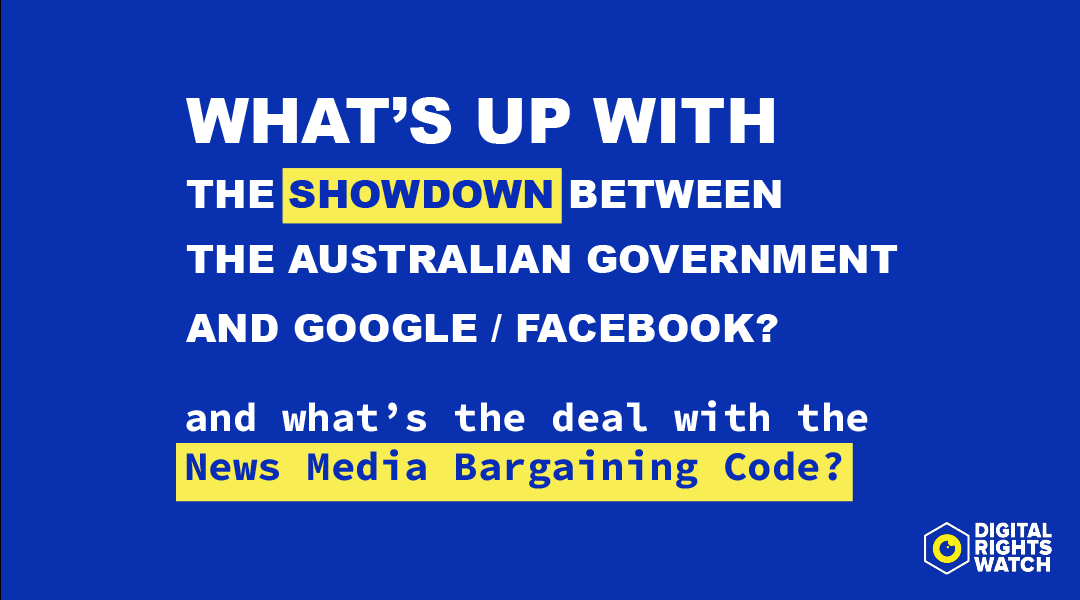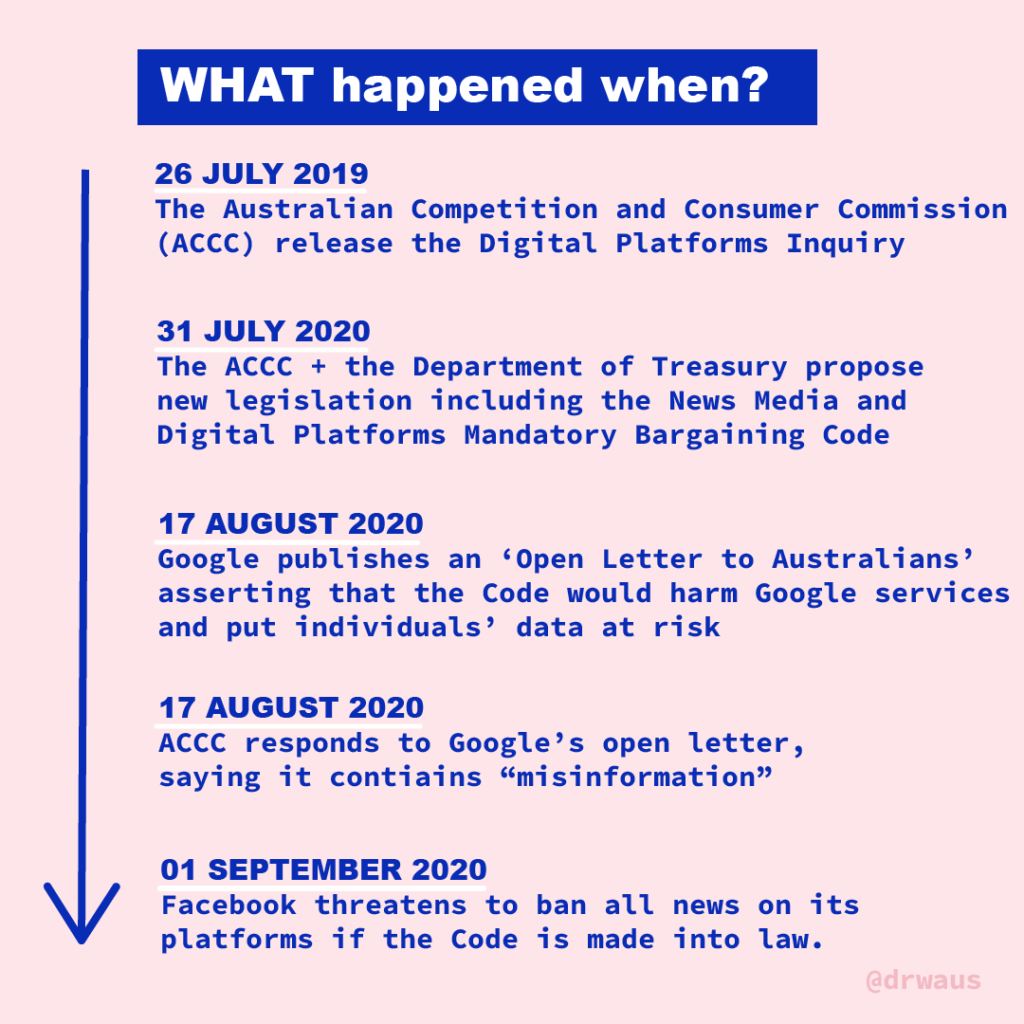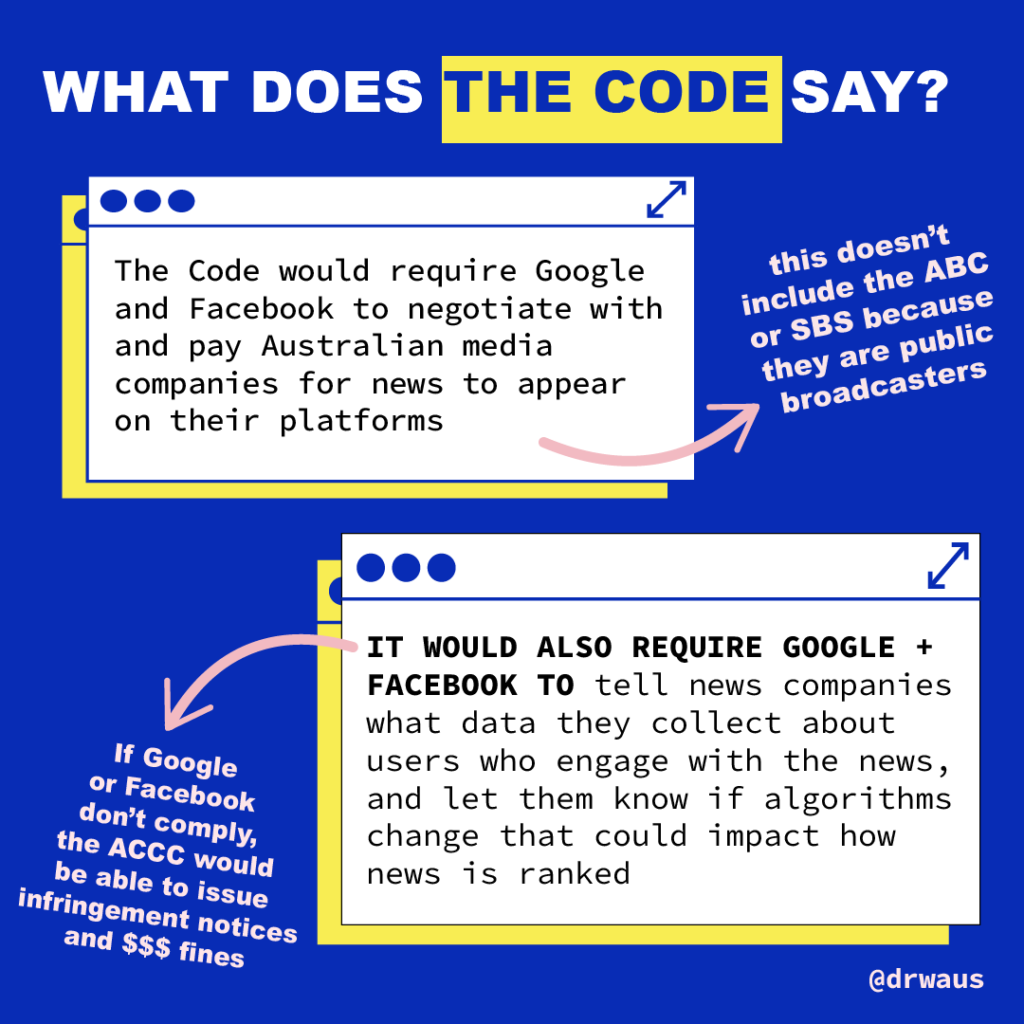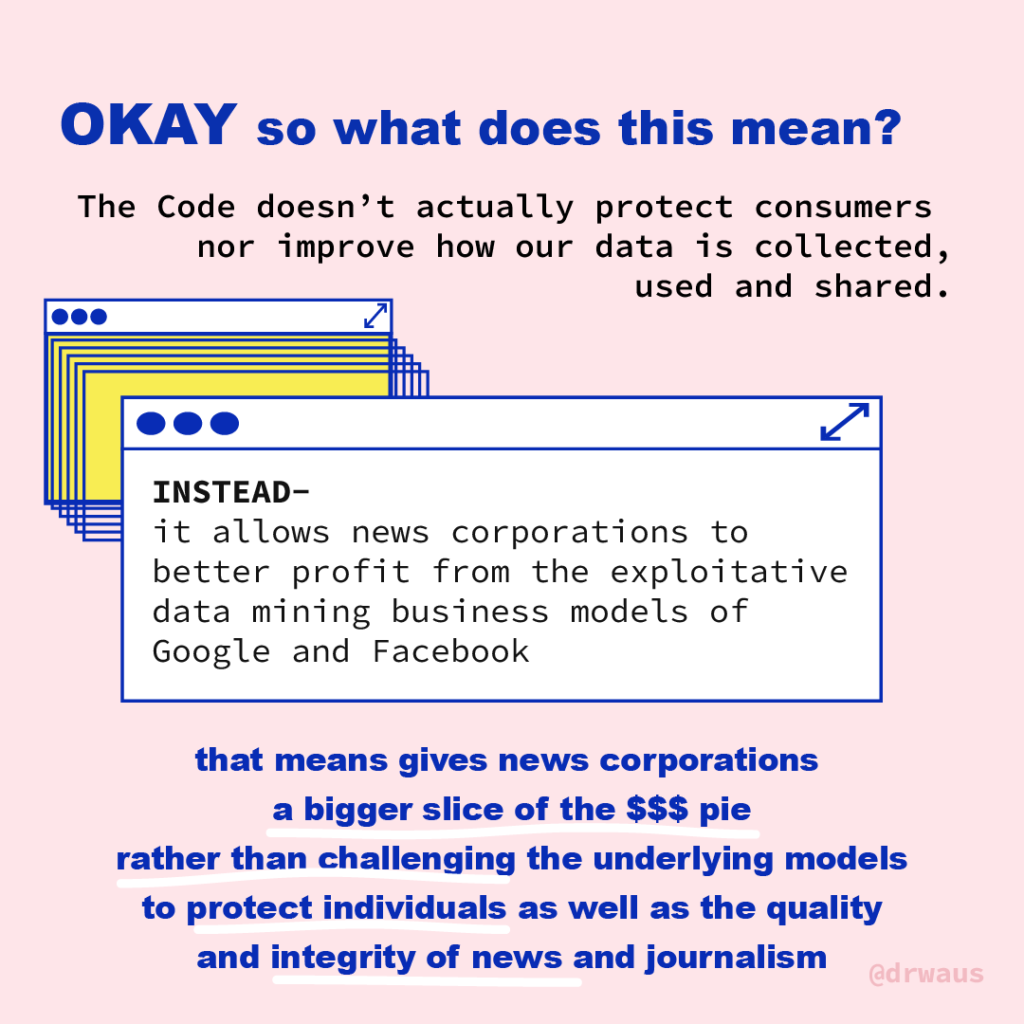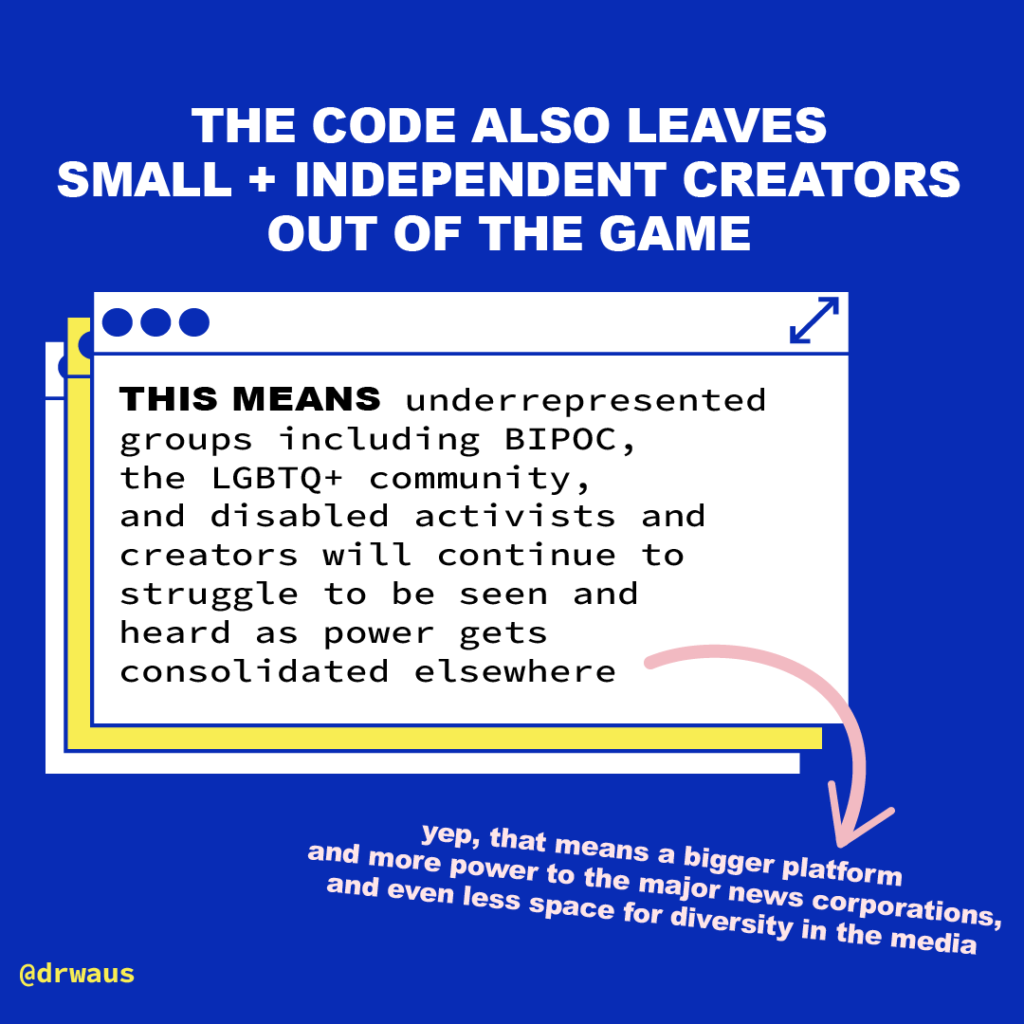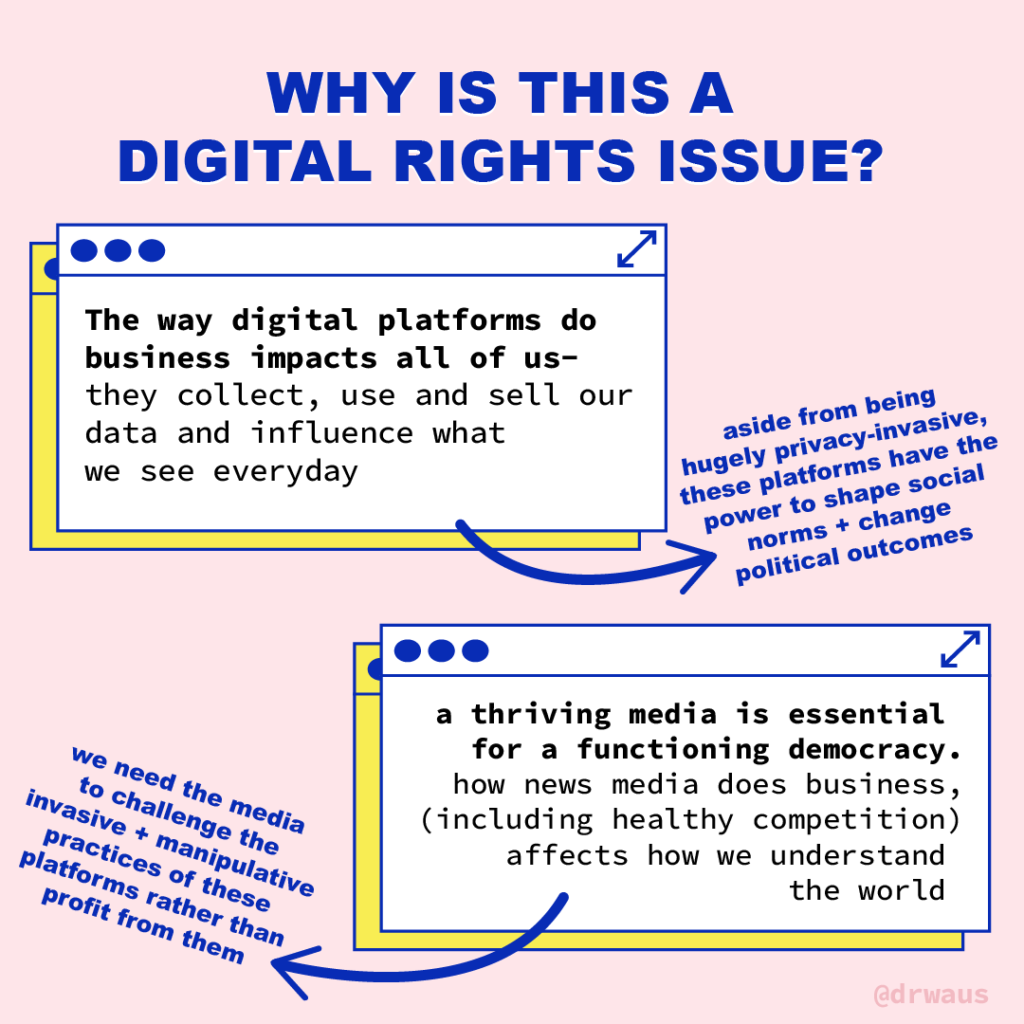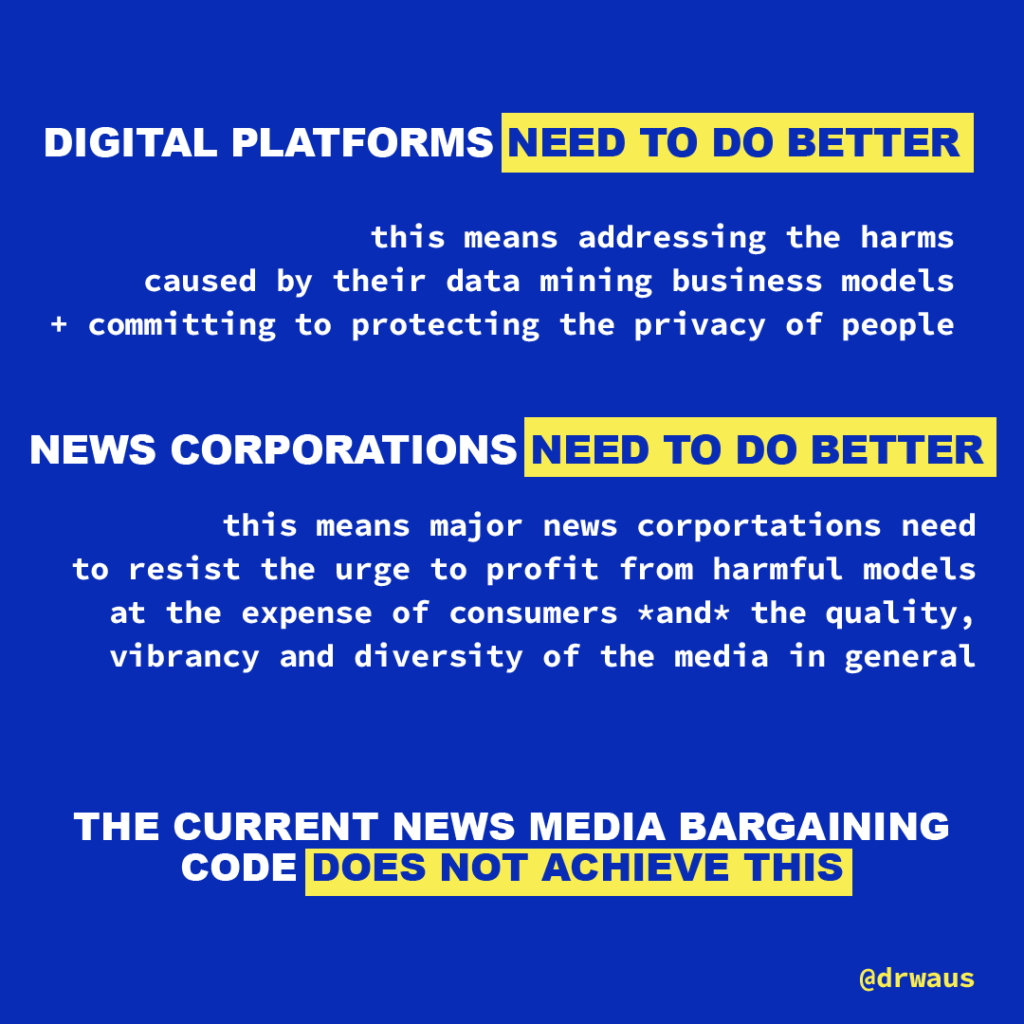There’s no doubt in our minds that we want digital platforms to change–to treat our privacy as a priority, to ensure our data is protected and not used against our interests, to give us transparency and be accountable for invisible algorithms that we are subject to.
We also want the government to act, to set regulations in place to guide this privacy by design behavior and give us the means to exercise our rights when our data is abused and our privacy exposed.
With the News Media Bargaining Code, the ACCC aims to “promote competition, enhance consumer protection and support a sustainable Australian media landscape in the digital age.” Well, that is what we want, but we don’t believe that the draft Bill delivers any of this.
We want the rules of data-driven internet models to change universally, whereas the media bargaining code aims to deliver change (in the shape of profit) only for established news publishers. Not only that, it threatens to perpetuate the collection and abuse of user data by building further dependence on it. It centers the Google and Facebook business model as a means for revenue, rather than reshaping it.
There are several key recommendations regarding the need for a new data protection approach and stronger rules for privacy in the ACCC Digital platforms inquiry final report. It correctly notes that consumers are left at the mercy of predatory data collection practices and that a regulatory framework would incentivise innovation which protects, rather than exploits, user data. We are concerned that the first actionable outcome of the extensive ACCC final report does not focus on addressing the most pressing systematic data collection and exploitation models that digital platforms thrive on, rather, it seeks to make sure that news corporations benefit from them.
The recommendations from our submission to the consultation, are as follows:
- Prioritise addressing the harmful business model of digital platforms by focusing on consumer protection.
- Focus on creating a systemic solution which supports a diverse and dynamic space for all types of journalism in Australia such as the Independent Future Fund for Journalism.
- Adequately fund and support the public broadcasters.
- Broaden and fix the definition of news covered by the current proposal.
- Do not fixate the proposal to Google and Facebook, but broaden the scope of “digital platform service” to create a model which enables other platforms to emerge in this space with similar functionality (influence, advertising practices, impact on media providers, etc).
- Do not allow individual news corporations to negotiate special terms with the platforms directly.
We have put together a series of social media tiles to explain the Code and our position on it. You can see the tiles below or on our Instagram Page.

